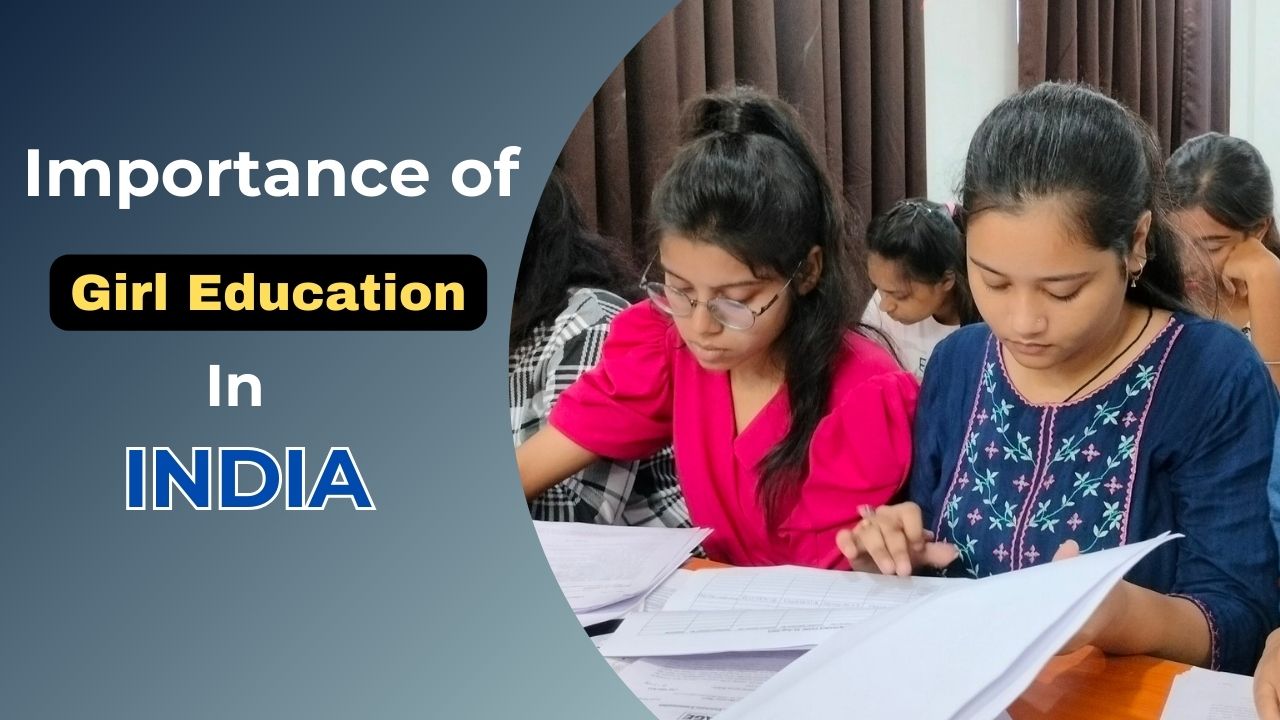
Importance of Girl Education in India
In India's journey toward progress, education stands out as a crucial part, particularly when it comes to educating girls. It's not merely about literacy rates or economic growth; it's about fostering an inclusive society where every individual has the opportunity to thrive and contribute. In this narrative, the Importance of girl education in India emerges as a cornerstone, promising a brighter, more equitable future for the nation.
India, despite remarkable strides in various sectors, still grapples with gender disparities, particularly in education. Historically, girls have been sidelined when it comes to accessing quality education. However, the tide is turning, and the realization of the indispensable role girls play in nation-building is gaining momentum.
The benefits of girls' education in India are manifold, extending far beyond individual prosperity to societal advancement. Firstly, education serves as a potent tool for breaking the intergenerational cycle of poverty. When girls are educated, they are more likely to secure better employment opportunities, thereby uplifting their families and communities economically.
Moreover, educated women are better equipped to make informed decisions regarding their health and well-being, leading to improved maternal and child health outcomes. Studies consistently highlight the correlation between maternal education and reduced infant mortality rates, underlining the pivotal role of girls' education in public health initiatives.
Furthermore, education empowers girls to become agents of change in their communities. Whether it's advocating for social justice, promoting environmental sustainability, or challenging gender norms, educated girls emerge as catalysts for positive transformation, fostering a more inclusive and progressive society.
While conventional courses like BA, BSc, and home science have their merits, there's a compelling argument for girls to pursue Information Technology (IT) and Management courses like BCA and BBA. In today's digital age, proficiency in IT and management skills opens doors to a plethora of opportunities in diverse sectors, from tech firms to multinational corporations. By encouraging girls to explore these domains, India can bridge the gender gap in STEM (Science, Technology, Engineering, and Mathematics) fields and leverage their talents for innovation and growth.
Recognizing the urgency of promoting girls' education and steering them towards these emerging fields, institutions like the CIMAGE Group of Institutions in Patna, Bihar, are leading by example. The institution's "Ladlee Bitiya Yojna" scheme exemplifies a commitment to empowering girls by offering them access to quality education at reduced fees. This initiative not only makes education more accessible but also sends a powerful message of inclusion and equality.
Through such initiatives, girls are not only encouraged to pursue their academic aspirations but are also provided with the necessary support to thrive in their chosen fields. By investing in girls' education, society invests in its own progress and prosperity, laying the groundwork for a more equitable and sustainable future.
However, ensuring universal access to education for girls requires a concerted effort from various stakeholders, including governments, communities, and civil society organizations. Policy interventions aimed at eliminating barriers to girls' education, such as gender-based discrimination, child marriage, and lack of infrastructure, are imperative.
Moreover, fostering a supportive and conducive learning environment where girls feel safe, respected, and empowered is essential. This includes implementing gender-sensitive teaching methods, providing comprehensive sexuality education, and addressing the unique needs and challenges faced by girls from marginalized communities.
In conclusion, the Importance of girl education in India cannot be overstated. It is not just a matter of academic achievement but a fundamental human right and a catalyst for social progress and economic development. By empowering girls through education, India can unlock the full potential of its future leaders, innovators, and changemakers, paving the way for a more inclusive and prosperous society. As we navigate the complexities of the 21st century, let us reaffirm our commitment to ensuring that every girl has the opportunity to learn, grow, and thrive, for her success is synonymous with the progress of our nation.













